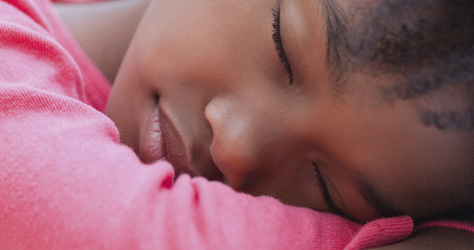A rough guide of what to expect and when
It’s so exciting to watch your pre-schooler’s development, but it’s easy to worry if they’re not learning skills at the ‘right’ time. Our handy guide will show you that all children development at different speeds
At a glance
- Will my child be able to have a conversation?
- Children develop at different paces
- Will my little one be able to write yet?

Speech
Around aged 2, they will have what speech therapists call the ‘language explosion’ when they’re learning new words every day. When they have more than 50 words, they will put two words together (‘Mummy car’). By two and a half to three they are putting three words together (‘Mummy drive car’). At three, you should be able to understand 75-100% of what they say, but there may still be pronunciation difficulties. Using d for g ('date' instead of 'gate') or t for k is normal until 3½ years old and 'lellow' instead of 'yellow' is quite common until aged 5. If they’re still making these mistakes 6 months to a year after that age, it’s worth getting a speech therapist’s opinion. Lisping s sounds are quite common and most disappear by 4 ½ to 6 years old without help.
Movement
Almost all pre-schoolers will be walking by 2; talk to your health visitor for advice if not. By 3 they will be able to run, jump (usually with feet together for now), catch a bounced ball some of the time, and possibly pedal a tricycle or bike with stabilisers (though that may not happen until nearer 3 ½). Some can hop and balance on 1 foot for a few seconds, but many aren’t able to do that until 4.
Social skills
At 2 your pre-schooler will still be playing alongside other children rather than playing with them; the skill of making friendships usually happens between 2 and 3. By 3 they understand the concept of sharing toys, even if they can’t always put it into practice, and may have an imaginary friend. Between 3 and 4 they will have a clear idea of who their friends are. Girls often pair up or play in small groups; boys usually opt for bigger groups. At 3, they are starting to be able to see things from other’s point of view, but will not develop real empathy until nearer four or later.
Play
2-year-olds are usually happy playing on their own if a game absorbs them, although their concentration span is still short – probably around 5-10 minutes, rising to 15 minutes or a bit longer around aged 3 ½. By three they may like love simple board games and love role-playing games like superheroes or mummies and daddies. Most pre-schoolers know their colours around 2 to 2½.
Reading/writing
It’s tempting to want to get started early on recognising letters and writing their name. If they’re interested, go for it. But if they’re not (and most aren’t until at least 3 ½ to 4) don’t push it. Keep it playful; encourage drawing and colouring and correct pencil grip. By 3 most are able to draw a circle and an x, and by 3 ½ they might try a face. Most 3 to 3 ½-year-olds will recognise their own name but not be able to write it yet. Pre-schools and nursery classes usually start learning letters half way through the year, when they’re turning 4; reading will come in reception class at school.
* All pre-schoolers are unique and develop at different paces – don’t forget, they haven’t read the books! But if you’ve got concerns, do talk to your health visitor or GP. Read more about Pre-schooler Development Anxiety here.